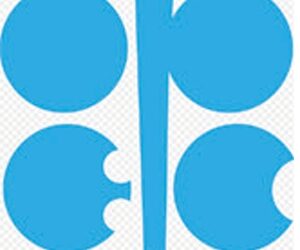petroleum deposits.
The 24 percent increase to 143.1 billion barrels in estimated reserves is politically significant because it lifts Iraq past neighboring Iran, which claims 137.6 billion barrels, while leaving Iraq behind Saudi Arabia, Canada and Venezuela. Iraq last estimated its oil reserves at 115 billion barrels, in 2001.
Oil Minister Hussein Al-Shahristani told a Baghdad news conference, “This is great news for the Iraqi people, and we will relay it to the Organization of Petroleum Exporting Countries.” Total reserves are a key statistic used by OPEC is allotting quotas to member states. Iraq is an OPEC member but has been outside the quota system for two decades. It is expected to resume full membership soon and come back under the quota system and officials have said it would seek a quota larger than Iran’s. Iran is unlikely to agree.
Falah al-Amri, the head of the Iraqi State Oil Marketing Company, indicated future quota allocations might have been a factor in the revision. “The new figure will help advance Iraq’s position within OPEC,” al-Amri told reporters in Baghdad.
Shahristani said, “The new figure for the reserves is not final. Iraq will carry out studies and reveal new numbers every year. We expect more increases.”
Iraq’s oil reserves previously ranked fifth in size, according to BP’s Statistical Review of World Energy, which compiles official government figures. Canada’s reserves include vast deposits of oil sands, while Venezuela raised its estimates by around 70 percent in 2008, raising some eyebrows.
The new Iraqi estimate does not include oil in the country’s semi-autonomous Kurdish region, as Kurdish authorities did not provide the ministry with details about reserves they control, Shahristani said.
Iraq depends on oil for the bulk of the foreign currency earnings it needs to rebuild the economy. The country currently produces about 2.4 million barrels of crude a day, according to Bloomberg estimates. (Iran’s output is around 3.8 million barrels a day.) The Iraqi government wants to more than double output and hopes to pump 12 million barrels a day within as little as six years, bypassing even Saudi Arabia to be the world’s chief oil producer.
To raise output, the government awarded a dozen service contracts last year to international oil companies. The two licensing rounds were the first held since the U.S-led invasion that toppled the regime of Saddam Hussein in 2003. Only one of the contracts went to an American firm, despite Iranian charges, which continue to this day, the Washington invaded Iraq in 2003 to take over the oilfields.
The new reserves estimate was “not random,” Shahristani said. “It came from in-depth studies by the Ministry of Oil and the international companies with which we have signed contracts in the first and second rounds.”
The amount of oil contained in the 66 fields discovered so far in Iraq totals 505.4 billion barrels, but only 143.1 billion barrels of these reserves can be extracted under current technology, Shahristani said.
In a further step to develop Iraq’s energy resources, the government plans on October 20 to hold its first auction of contracts to develop natural gasfields, a further challenge to Iran’s role in the oil and gas field.
Italy’s Eni and Mitsubishi Corp. of Japan are among 13 companies registered to bid to develop the Akkas, Mansouriya and Siba gas fields.























